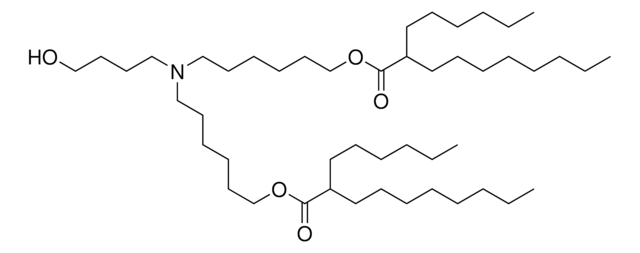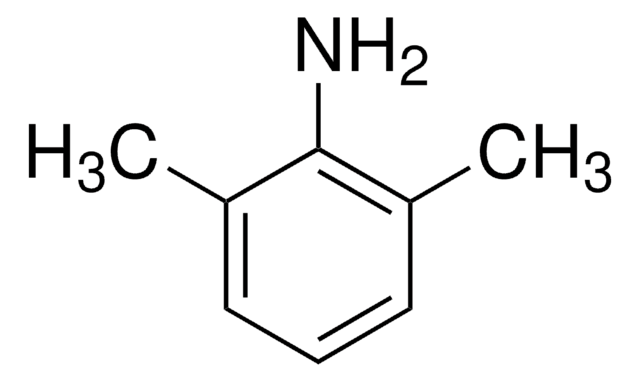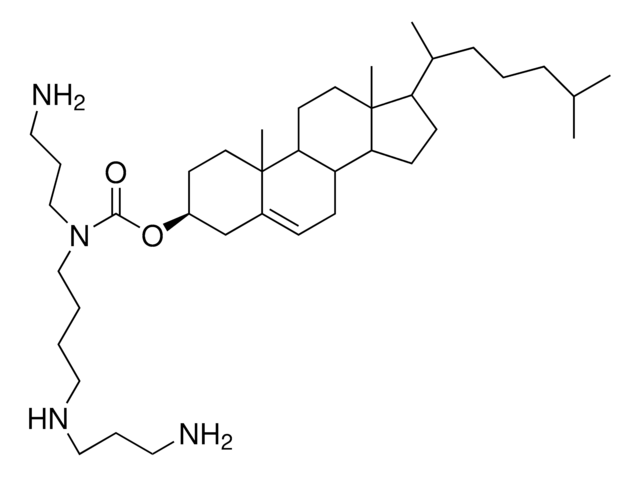53467
2,3-Dioleyloxy-1-(dimethylamino)propane
≥98.0% (TLC)
Synonym(s):
1,2-Dioleyloxy-3-(dimethylamino)propane, N,N-Dimethyl-2,3-bis[(9Z)-9-octadecen-1-yloxy]-1-propanamine, DODMA
About This Item
Recommended Products
biological source
synthetic
Assay
≥98.0% (TLC)
form
liquid
functional group
amine
ether
lipid type
cationic lipids
storage temp.
−20°C
SMILES string
CCCCCCCC\C=C/CCCCCCCCOCC(CN(C)C)OCCCCCCCC\C=C/CCCCCCCC
InChI
1S/C41H81NO2/c1-5-7-9-11-13-15-17-19-21-23-25-27-29-31-33-35-37-43-40-41(39-42(3)4)44-38-36-34-32-30-28-26-24-22-20-18-16-14-12-10-8-6-2/h19-22,41H,5-18,23-40H2,1-4H3/b21-19-,22-20-
InChI key
GLGLUQVVDHRLQK-WRBBJXAJSA-N
Related Categories
Packaging
Storage Class Code
10 - Combustible liquids
WGK
WGK 3
Flash Point(F)
Not applicable
Flash Point(C)
Not applicable
Regulatory Listings
Regulatory Listings are mainly provided for chemical products. Only limited information can be provided here for non-chemical products. No entry means none of the components are listed. It is the user’s obligation to ensure the safe and legal use of the product.
JAN Code
53467-500MG:
53467-BULK:
53467-VAR:
53467-100MG:
Certificates of Analysis (COA)
Search for Certificates of Analysis (COA) by entering the products Lot/Batch Number. Lot and Batch Numbers can be found on a product’s label following the words ‘Lot’ or ‘Batch’.
Already Own This Product?
Find documentation for the products that you have recently purchased in the Document Library.
Customers Also Viewed
Our team of scientists has experience in all areas of research including Life Science, Material Science, Chemical Synthesis, Chromatography, Analytical and many others.
Contact Technical Service










